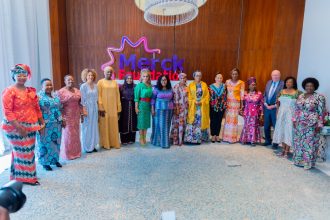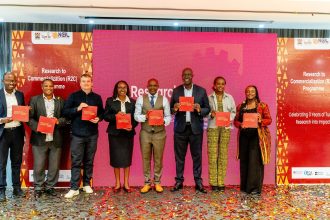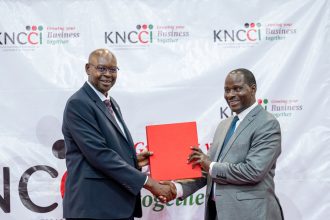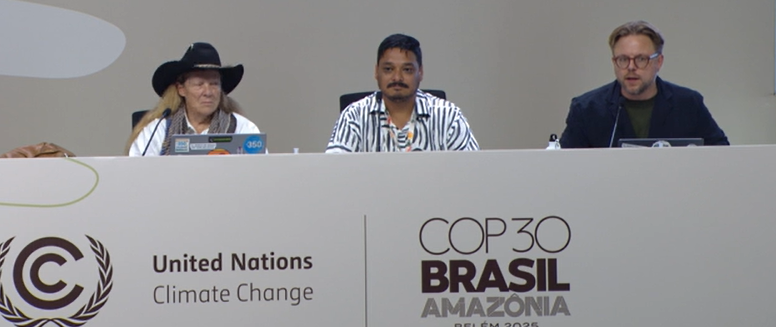By Henry Neondo in Belém, Brazil, November 2025.
At a high-level side event during COP30, global experts and practitioners called for a decisive shift toward natural farming and regenerative agriculture as a critical solution to the twin crises of climate change and food insecurity.
The session, featuring Prof. Hunter Lobbyns and sustainability advocate Rushenk Bardolia, underscored the transformative potential of smallholder farmers—especially women—in driving global agricultural resilience and sustainability.
“Eighty percent of the world’s food is produced by smallholder farmers, most of them women, yet they receive the least support,” said Prof. Hunter Lobbyns in her opening remarks. “We must reimagine agriculture not as an extractive system but as one that regenerates ecosystems, livelihoods, and communities.”
From Industrial Farming to Nature-Based Solutions
Hunter challenged the conventional model of industrial agriculture, often exported from the Global North, as unfit for the environmental and social realities of the Global South. Instead, he highlighted regenerative agriculture principles such as minimal soil disturbance, year-round living roots, crop diversity, and the use of native seeds—methods that replenish soil health, reduce dependency on chemical inputs, and increase yields sustainably.
Drawing on success stories from India’s Andhra Pradesh and Zambia, Hunter shared how millions of smallholder farmers have embraced natural farming practices using locally available materials such as cow manure and urine. These methods, pioneered by Indian agronomist Vijay Kumar, have tripled farm productivity and doubled farmer profits within a year, all without government subsidies.
“India’s experience shows that regenerative farming is not a dream—it’s a reality,” Hunter added. “Over 4 million farmers are already benefiting, and we aim to reach 9 million soon.”
Responding to the innovation, Dr Rosalid Nkirote the executive advisor at the African Coalition of Communities Responsive to Climate change (ACCRCC) noted that grassroot communities across Africa are open to ideas and innovations that help them adapt to climate crisis noting that rural communities are suffering untold stress from changing weather patters, reducing rainfall and yields that do not meet needs.
Financing the Transition
Rushenk Bardolia highlighted the critical role of finance and policy action in scaling regenerative agriculture. “Our food systems account for about 25% of global emissions, yet less than 2% of climate finance is directed toward transforming them,” he said. “We must redirect investments to communities in the Global South—especially in Africa—where regenerative agriculture can reduce emissions by 3 to 6 tons per acre while improving food security.”
He also emphasized the need to unlock idle and fallow land in regions like Ghana, address land tenure challenges, and build partnerships to de-risk agricultural investments. “Without access to land and capital, smallholder farmers cannot participate fully in the green transition,” Bardolia warned.
Global South Leadership and South–South Cooperation
Discussions during the session showcased how South–South collaboration is accelerating knowledge transfer and innovation. Examples from Sri Lanka, Zambia, and Brazil illustrated the adaptability of India’s regenerative farming model across different ecological zones. In Sri Lanka, natural farming methods helped reduce fertilizer dependency and prevent future crises like the farmers’ revolt over chemical input costs. In Zambia, similar techniques have improved yields and crop resilience to extreme weather events.
 Prof. Lobbyns also noted the growing integration of agroecology and agroforestry in Brazil, with companies like Natura demonstrating how sustainable harvesting and holistic grazing can boost both livelihoods and biodiversity.
Prof. Lobbyns also noted the growing integration of agroecology and agroforestry in Brazil, with companies like Natura demonstrating how sustainable harvesting and holistic grazing can boost both livelihoods and biodiversity.
Toward Action and Continuity
Both speakers stressed the urgency of translating COP30 commitments into concrete action. “We cannot return to our countries with only promises,” said Bardolia. “We must implement what we’ve learned—our farmers, our soils, and our future depend on it.”
Action points emerging from the session included:
- Mobilizing idle and fallow land for regenerative farming in the Global South.
- De-risking agricultural investments to attract private and public finance.
- Investing in community-led agricultural initiatives.
- Building partnerships for policy implementation and farmer training.
- Continuing the dialogue and reporting progress at COP31.
As the session concluded, participants reaffirmed that regenerative agriculture is not just an environmental necessity but a social and economic imperative—a path to feeding the world while healing the planet.
“Smallholder farmers are not victims of climate change—they are climate heroes,” Bardolia concluded. “Their hands hold the key to our collective future.”




